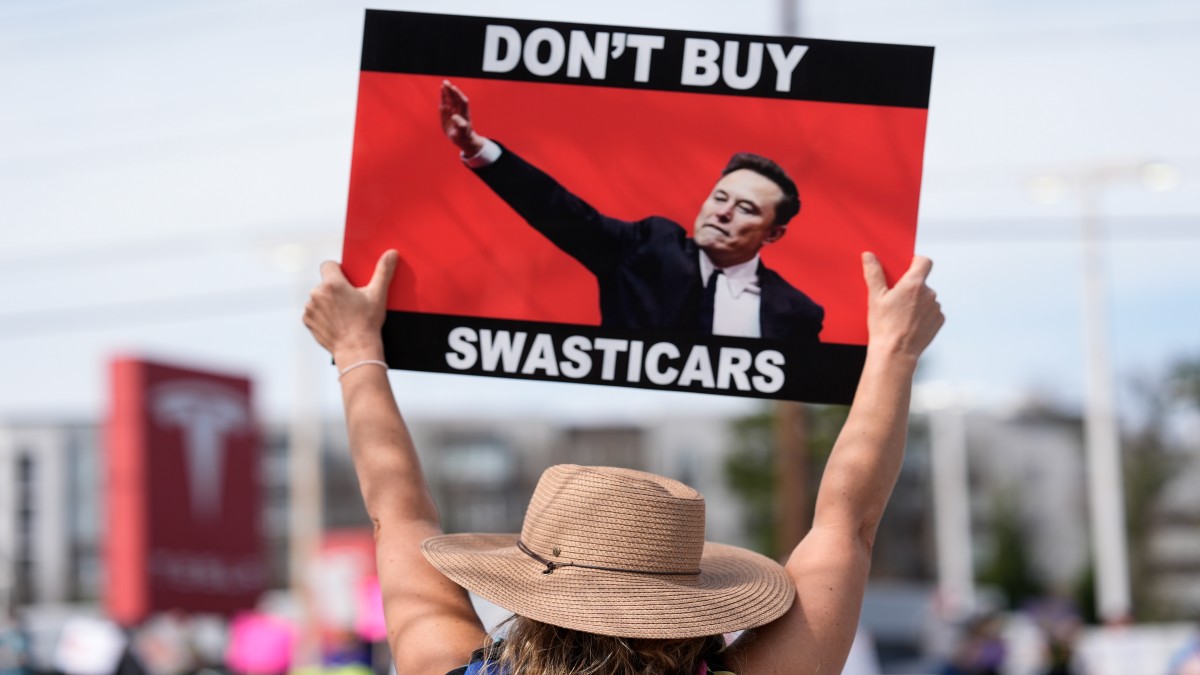Commerce Secretary Lutnick’s bold claim has unravelled as Tesla shares plunged more than 10 per cent, hitting fresh lows amid brand crisis and China backlash
Tesla shares plunged more than 10 per cent in early trading Monday (April 7), defying a high-profile prediction by Commerce Secretary Howard Lutnick that they would “never be this cheap again.”
The electric vehicle maker’s stock dropped to $214.80, dragging the company further into what has become its deepest slump since the pandemic-era market gyrations of 2020, Bloomberg reported.
On March 19, Lutnick had told Fox News in an interview that investors should scoop up Tesla shares, saying “it’ll never be this cheap again”. The following day, Elon Musk told employees to hold tight to their stock, insisting that better days were ahead.
Those better days haven’t arrived. Instead, Tesla has been broadsided by weak demand, political fallout, and what one analyst described as “unprecedented brand damage.”
From Wall Street darling to cautionary tale
Once the darling of both climate-conscious investors and tech enthusiasts, Tesla has shed 50 per cent of its market value since its peak in mid-December 2024. The stock had soared after Donald Trump’s shock 2024 election win, under the assumption that Musk’s past flirtations with the Republican would help the company. Instead, Musk’s political theatrics— from bizarre posts on X to inflammatory comments about world affairs— have pushed consumers away.
Wedbush Securities’ Daniel Ives, one of Tesla’s most vocal bulls, has now slashed his target price for the company’s shares by more than 40 per cent, pointing to a mounting crisis at the heart of Tesla’s identity. “This is no longer just about numbers — it’s about trust, image, and geopolitics,” Ives wrote in a note to clients.
Tesla’s latest quarterly delivery numbers, released last week, confirmed those fears. Deliveries fell to their lowest level since 2022, even after analysts had significantly lowered expectations. JPMorgan Chase analyst Ryan Brinkman, long skeptical of Tesla’s valuation, admitted he had “underestimated the consumer backlash.”
Impact Shorts
More ShortsChina: The real storm
Beyond Wall Street, Tesla’s deeper problem may lie in the world’s largest electric vehicle market — China. Trump’s recent move to impose a 25 per cent tariff on imported autos has reignited trade tensions with Beijing, and Tesla, despite its Shanghai factory, is caught in the crossfire.
“The tariffs in their current form will disrupt Tesla, the overall supply chain, and its global footprint which has been a clear advantage over the years versus rising competitors like BYD,” Ives warned. He added that Chinese consumers, already wary of Musk’s antics, are likely to favour domestic brands like BYD, Nio, and Xpeng in growing numbers.
Musk, who once commanded loyalty bordering on devotion, now faces open protests against the company. From Berlin to Beijing, the billionaire’s personal brand, once a unique asset, is now a political liability.
)